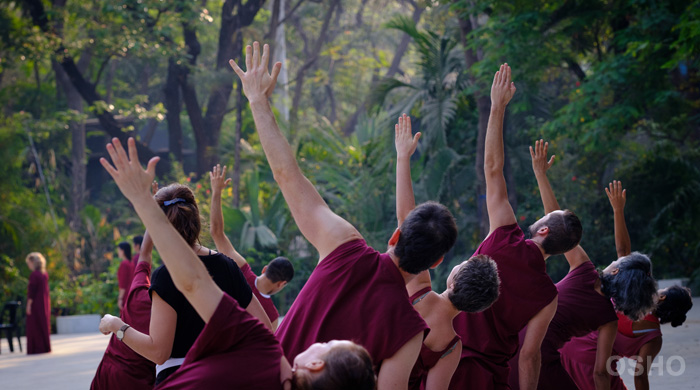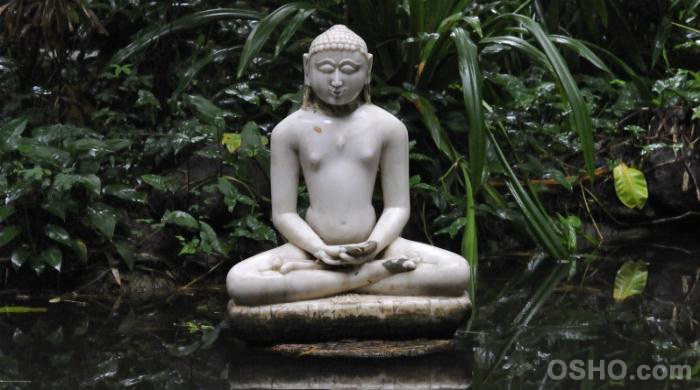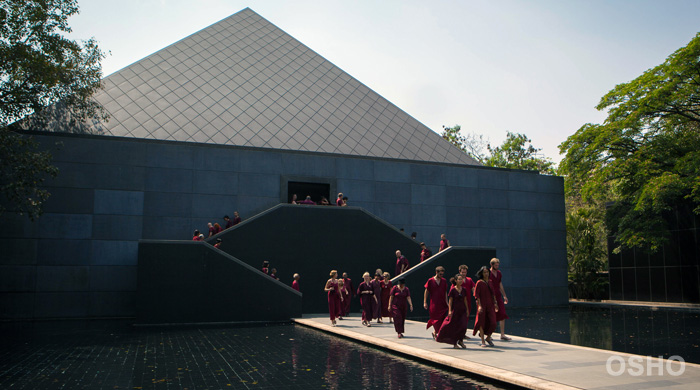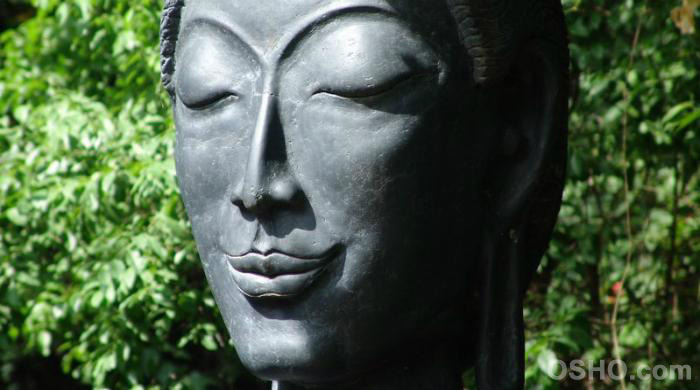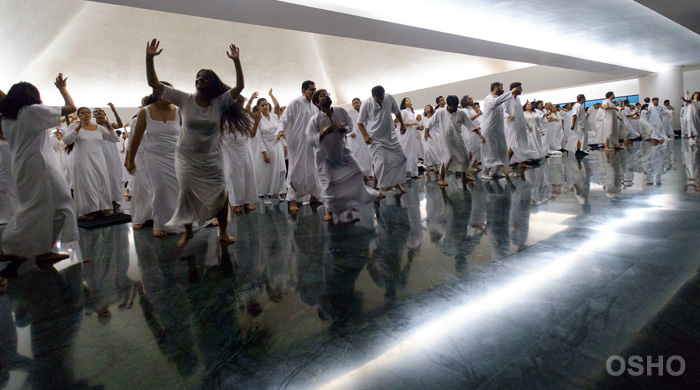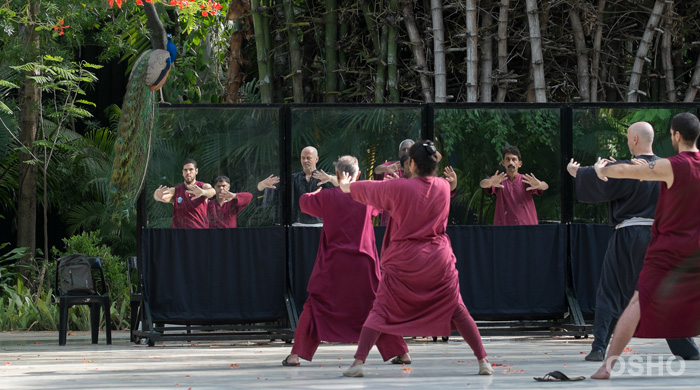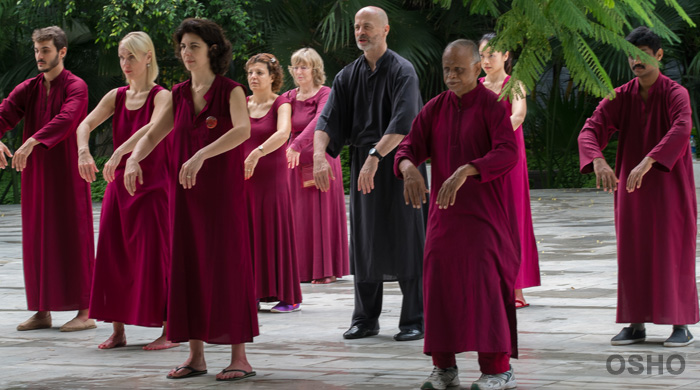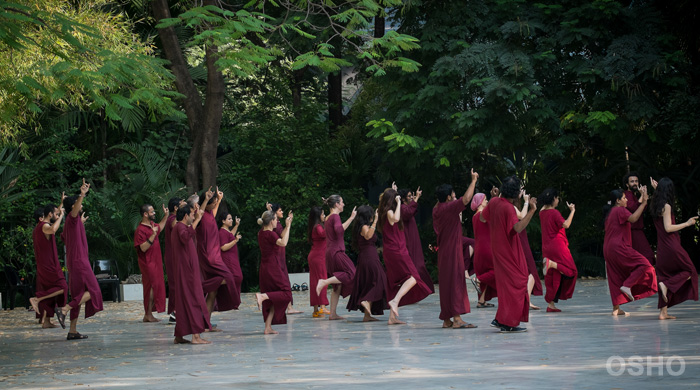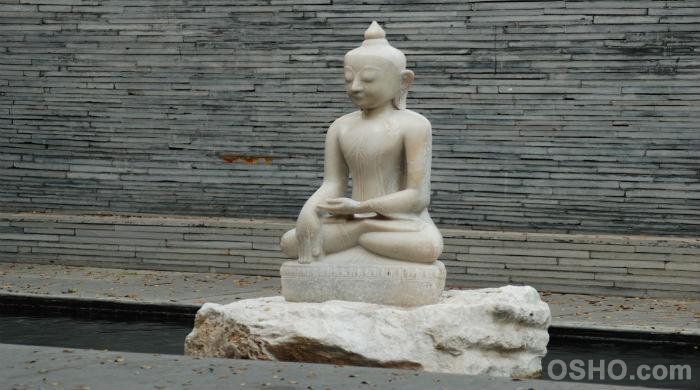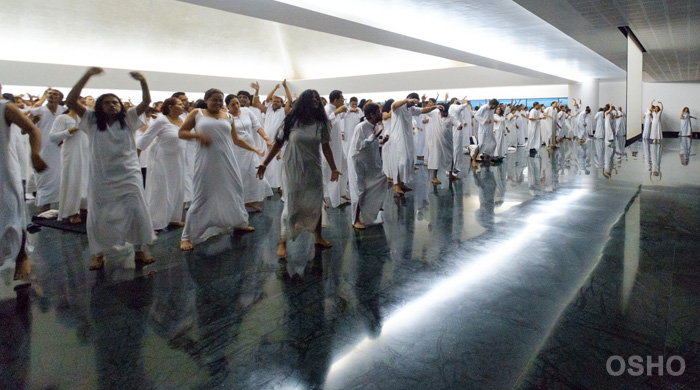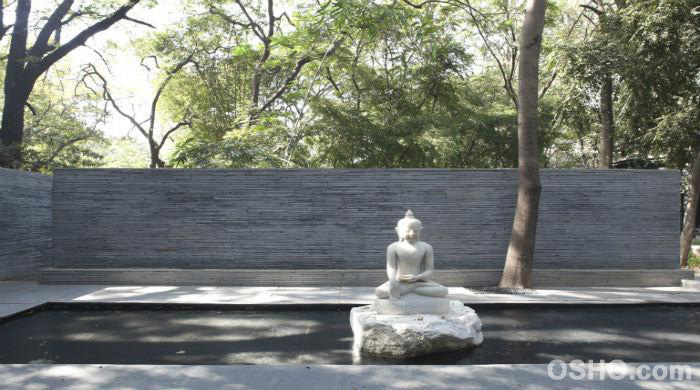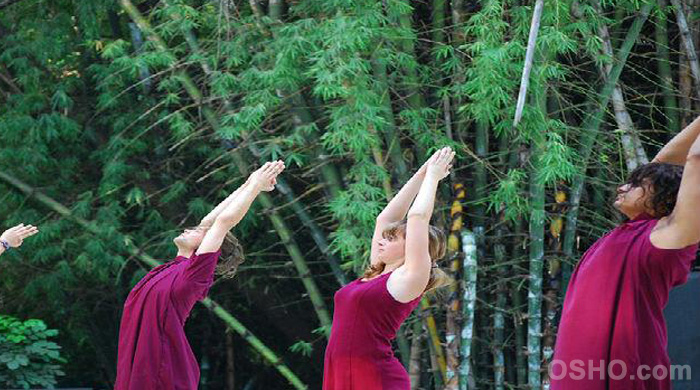Patanjali: Scientist, Poet, Mystic
Patanjali. I call him the scientist of the religious world, the mathematician of mysticism, the logician of the illogical.
Two opposites meet in him. If a scientist reads Patanjali’s Yoga Sutras he will understand immediately. A Wittgenstein, a logical mind, will feel immediately an affinity with Patanjali. He’s absolutely logical. If he leads you towards the illogical, he leads you in such logical steps you never know when he has left the logic and taken you beyond it. He moves like a philosopher, a thinker, and makes so subtle distinctions that the moment he takes you into nirvichara, into no-contemplation, you will not be able to watch when the jump has been taken. He has cut the jump into many small steps.
With Patanjali you will never feel fear, because he knows where you will feel fear. He cuts the steps smaller and smaller, almost as if you move on the plain ground. He takes you so slowly that you cannot observe when the jump has happened, when you have crossed the boundary. He is also a poet, a mystic...a very rare combination.
Mystics are there, like Tilopa; great poets are there like the rishis of Upanishads; great logicians are there like Aristotle, but you cannot find a Patanjali. He is such a combination that since him there has been no one who can be compared to him.
It is very easy to be a poet because you are out of one piece. It is very easy to be a logician; you are made of one piece. It is almost impossible to be a Patanjali because you comprehend so many opposites, and in such a beautiful harmony he combines them all. That’s why he has become the alpha and the omega of the whole tradition of yoga.
In fact, it was not he who invented yoga; yoga is far more ancient. Yoga had been there for many centuries before Patanjali. He is not the discoverer, but he almost became the discoverer and founder just because of this rare combination of his personality. Many people had worked before him and almost everything was known, but yoga was waiting for a Patanjali. And suddenly, when Patanjali spoke about it, everything fell in line and he became the founder. He was not the founder, but his personality is such a combination of opposites, he comprehends in himself such incomprehensible elements, he became the founder, almost the founder. Now yoga will always be associated with Patanjali.
Since Patanjali, many have again worked and many have reached new corners of the world of yoga, but Patanjali towers like an Everest. It seems almost impossible that anybody ever will be able to tower higher than Patanjali...almost impossible. This rare combination is impossible. To be a logician and to be a poet and to be a mystic, and not of ordinary talents.... It is possible: you can be a logician, a great logician, and a very ordinary poet. You can be a great poet and a very ordinary logician, third-rate. That’s possible, that’s not very difficult. Patanjali is a genius logician, a genius poet, and a genius mystic; Aristotle, Kalidas and Tilopa all rolled in one; hence the appeal.
Try to understand Patanjali as deeply as possible, because he will help you. Zen Masters won’t be of much help. You can enjoy them – beautiful phenomena. You can be awe-struck, you can be filled with wonder, but they won’t help you. Rarely somebody will be able within you who can take the courage and jump into the abyss. Patanjali will be of much help. He can become the very foundation of your being, and he can lead you, by and by. He understands you more than anybody else. He looks at you and he tries to speak the language that the last amongst you will be able to understand. He is not only a master, he is a great teacher also.
Educationists know that a great teacher is not one who can be understood only by the topmost few students in the class, just the first benchers, four or five in a class of fifty. He is not a great teacher. A great teacher is one who can be understood by the last benchers. Patanjali is not only a master, he is a teacher also. Krishnamurti is a master, Tilopa is a master – but not teachers. They can be understood only by the topmost. This is the problem: the topmost need not understand. They can go by their own. Even without Krishnamurti they will move into the ocean and reach to the other shore; a few days sooner or later, that’s all. The last benchers who cannot move on their own, Patanjali is for them. He starts from the lowest and he reaches to the highest. His help is for all. He is not for the chosen few.



